|
|
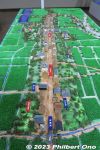
Following Senju-juku (Adachi Ward, Tokyo), Soka-juku was the second post town on the old Nikko Kaido Road from Tokyo (Nihonbashi) to Nikko in Tochigi Prefecture. However, no original buildings from Soka-juku remain. Part of the Nikko Kaido road remains, and a few monuments mark the location of the Honjin VIP lodges and road marker. This is a scale model of Soka-juku displayed in the local history museum.
|
|
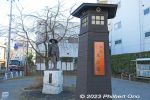
Statue of Kawai Sora (河合曾良), Matsuo Basho's travel companion for his Oku-no-Hosomichi five-month journey on foot to Tohoku and Hokuriku Regions. Statue built in 2008 to mark Soka's 50th anniversary.
|
|
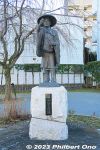
Statue of Kawai Sora, Matsuo Basho's apprentice and travel companion for Oku-no-Hosomichi. This statue is at the intersection leading to the old Nikko Kaido Road. It's across the bridge from the Basho statue at the watchtower.
|
|

Sora Kawai traveled with Haiku poet Matsuo Basho for most of Basho's Oku-no-Hosomichi poetry journey on foot to Tohoku and Hokuriku Regions in 1689.
|
|

Catfish sculpture on a small office building in Soka, Saitama.
|
|
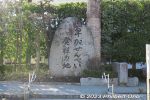
Soka senbei rice cracker birthplace monument in Osen Park, Soka, Saitama. Soka was a rice-growing area and farmers first made rice crackers as a snack. They were later sold to travelers when Soka-juku was established and became a cottage industry. They also used soy sauce from Noda. 草加せんべい発祥の地の碑
|
|
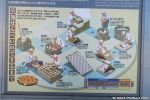
How to make Soka senbei rice crackers. At least 10 steps.
|
|

Shinmei Shrine 神明神社
|
|
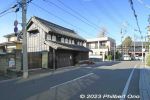
Soka-juku Shinmei-an tourist info center closed on March 21, 2022. The staff moved to the tourist info center near the Basho statue in Fudaba-kashi Park. 草加宿神明庵
|
|
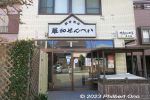
Soka senbei shop on the old Nikko Kido Road.
|
|
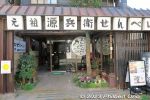
Another Soka senbei shop. There are over 60 senbei shops in Soka.
|
|
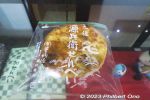
Soka senbei rice cracker. ¥90
|
|
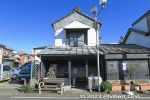
I think this is a bus stop on the Nikko Kaido.
|
|
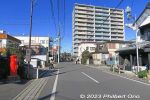
What the old Nikko Kaido looks like today. Nikko Kaido was one of the five main roads from Edo (Tokyo) during the Edo Period (17th to 19h centuries). Nikko was important for having the splendid mausoleum for Tokugawa Ieyasu, the first Tokugawa shogun.
|
|
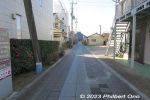
Way to Tofukuji Temple.
|
|
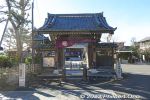
Tofukuji Temple gate.
|
|

Tofukuji Temple was first built in 1606 by Okawa Zusho who once served the Hojo Clan in Odawara, Kanagawa.
|
|
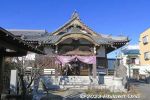
Tofukuji Temple Hondo main hall in Soka, Saitama. The temple is noted for wood carvings on this main hall. (Not to be confused with other temples named "Tofukuji.") 東福寺
|
|
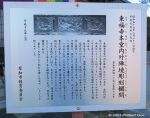
About Tofukuji Temple Hondo main hall wood carvings.
|
|
|
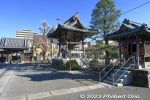
Tofukuji's bell tower.
|
|
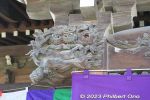
Tofukuji's bell tower is noted for wood carvings.
|
|
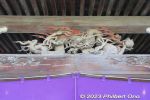
Tofukuji Temple in Soka, Saitama.
|
|
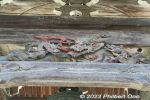
Tofukuji's bell tower dragon wood carvings.
|
|
|
|
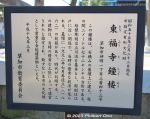
About Tofukuji's bell tower.
|
|
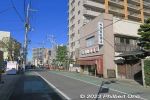
What the old Nikko Kaido Road looks like today.
|
|
|
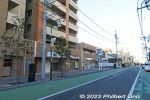
Honjin lodge monument in Soka-juku, Nikko Kaido Road. 大川本陣跡碑
|
|
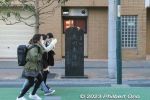
Okawa Honjin lodge monument in Soka-juku, Nikko Kaido Road. There was also another Honjin in Soka-juku. 大川本陣跡碑
|
|
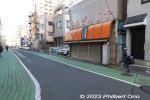
Original road marker in Soka-shuku, Saitama on the Nikko Kaido. 道標元標
|
|
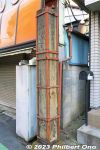
Original road marker reinforced with steel. Rare remnant of Soka-juku on the Nikko Kaido. 道標元標
|
|
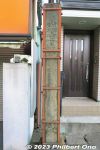
Original road marker in Soka-shuku, Saitama on the Nikko Kaido. 道標元標
|
|
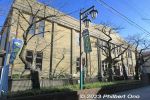
Soka folk history museum is near the old Nikko Kaido. 歴史民俗資料館
|
|
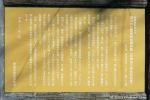
Soka folk history museum used to be Soka Elementary School built in 1926. New school buildings were built to replace this old building which opened in 1983 as a local history museum.
|
|

Soka folk history museum. 草加 歴史民俗資料館
|
|
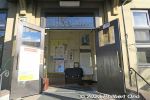
Soka folk history museum entrance. Free admission.
|
|
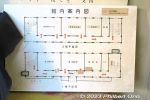
Floor layout on the 1st and 2nd floors. The old classrooms are now exhibition rooms for local history and artifacts.
|
|

Museum hallway looks like a school hallway. When you enter the museum, they want you to sign your name on the reception sheet.
|
|
|

First floor hallway.
|
|
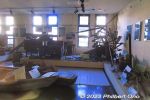
First floor exhibition room displays old farming equipment.
|
|
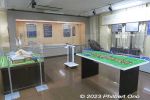
First floor exhibition room.
|
|
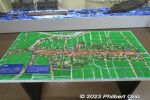
Scale model of Soka-juku post town along the Nikko Kaido. The red tag on the lower left is where the folk history museum is.
|
|
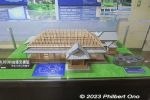
Scale model of the Okawa Honjin lodge in Soka-juku.
|
|
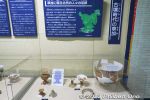
Ancient pottery found in Soka.
|
|
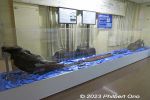
Remains of an ancient dugout canoe excavated from Ayase River in 1929.
|
|
|
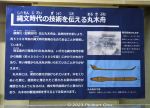
About the dugout canoe from 5,300 years ago.
|
|
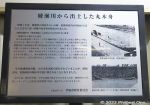
About the ancient dugout canoe excavated from Ayase River in 1929.
|
|
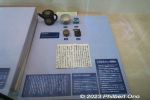
A few implements from the Okawa Honjin lodge.
|
|
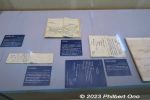
Documents related to traveling on the Nikko Kaido.
|
|

Replica scroll painting of Matsu Basho and Kawai Sora who visited Soka in 1689.
|
|
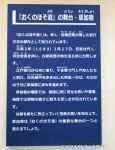
Basho and Kawai Sora visited Soka-juku on March 27, 1689.
|
|
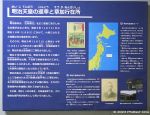
About Emperor Meiji's visit to Soka in 1876 and 1881 when he was traveling to Tohoku or Hokkaido.
|
|
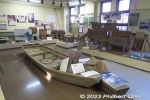
Factory equipment
|
|
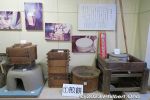
Senbei production equipment for mochi pounding.
|
|
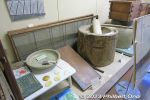
Senbei production equipment.
|
|
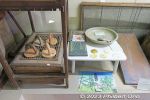
Senbei production equipment for roasting and drying.
|
|
|
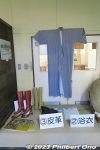
Leather footwear and yukata kimono are also made in Soka.
|
|
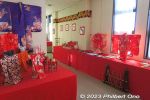
On the 2nd floor, Hinamatsuri Girl's Day dolls.
|
|
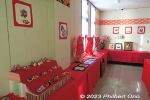
On the 2nd floor, Hinamatsuri Girl's Day dolls.
|
|
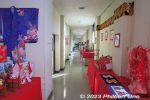
On the 2nd floor, Hinamatsuri Girl's Day dolls.
|
|
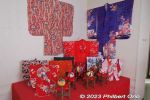
On the 2nd floor, Hinamatsuri Girl's Day dolls.
|
|
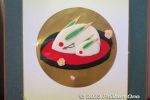
2023 is the Year of the Rabbit.
|
|
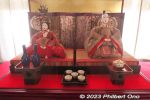
On the 2nd floor, Hinamatsuri Girl's Day dolls.
|
|
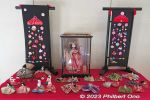
On the 2nd floor, Hinamatsuri Girl's Day dolls.
|
|
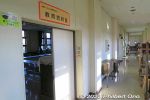
2nd floor hallway.
|
|

Former classroom used as a meeting room.
|
|
|
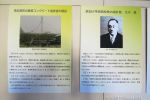
Soka Elementary School was built in 1926. Two-story, ferro-concrete building with six classrooms. Architect was Soka-native Okawa Isamu who even attended Soka Elementary School (right photo)..
|
|

History of the museum/school.
|
|
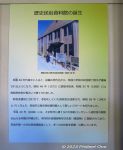
History of the museum/school.
|
|
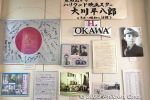
Movie actor from Soka named Okawa Heihachiro (1905–1971) (aka Henry Okawa) who made it to Hollywood. He was in "The Bridge on the River Kwai" movie. 大川 平八郎
|
|
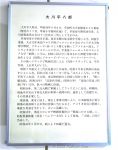
About Heihachiro Okawa.
|
|
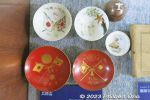
Japanese soldiers returning from the war gave these gifts to their well-wishers. From the 1930s. These are ceremonial sake cups. 兵隊盃
|
|
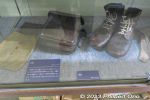
Japanese soldier's bag and boots from 1930s.
|
|
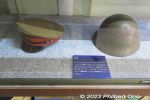
Army helmet
|
|
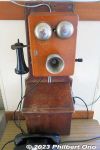
Old telephone from 1931. Soka started telephone service in 1918. Only 60 phone numbers at first. By 1953, 431 people had a telephone number.デルビル磁石式壁掛電話機
|
|
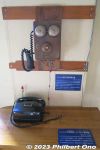
Old telephone.
|
|
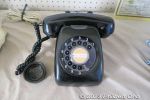
Old telephone still widely used in Japan until the 1980s.
|
|
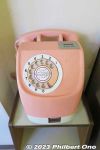
Pink pay phone in Japan. Now obsolete. Took only ¥10 coins.
|
|
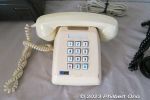
Push button phone widely used in Japan until the early 1990s.
|
|
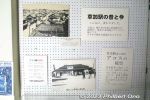
Soka Station history.
|
|
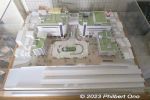
Model of AKOS shopping complex in front of Soka Station.
|
|
|
|
|
|